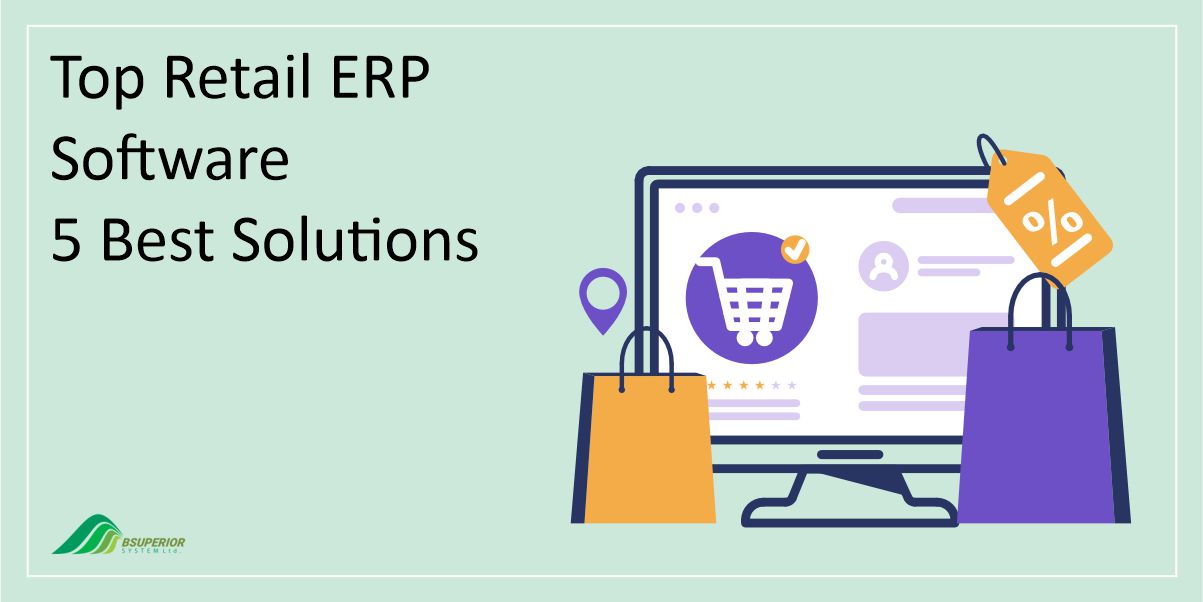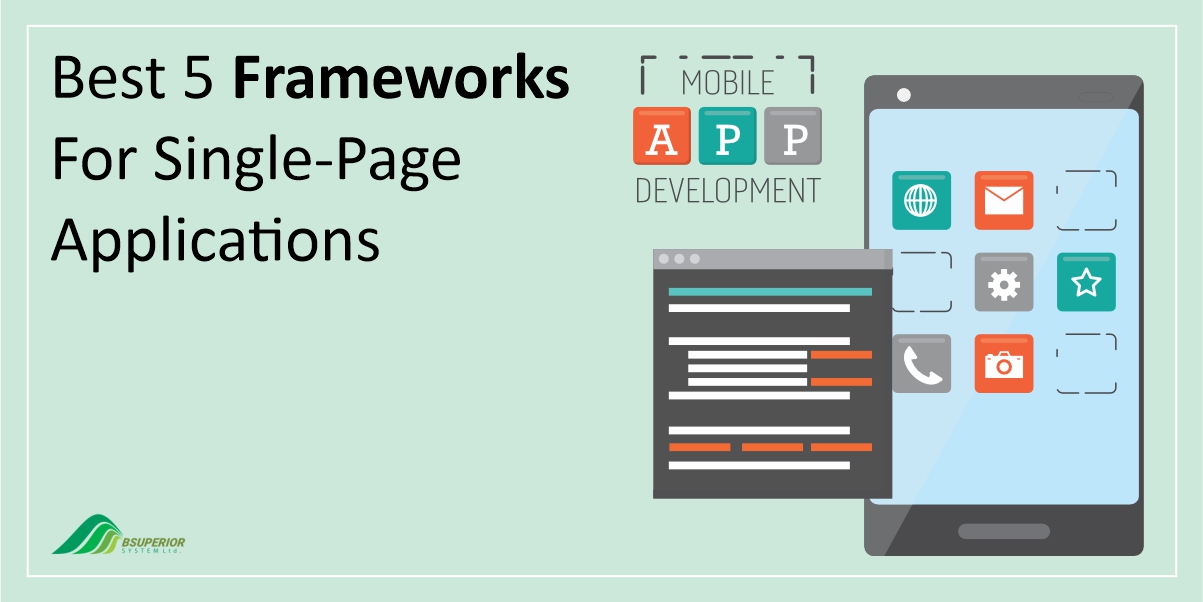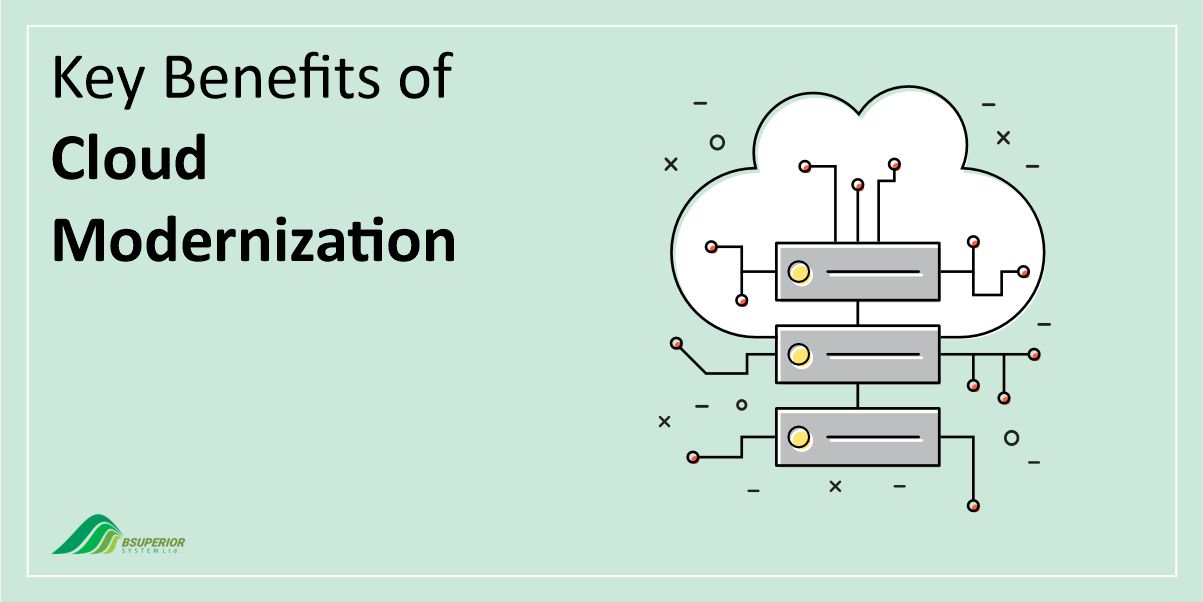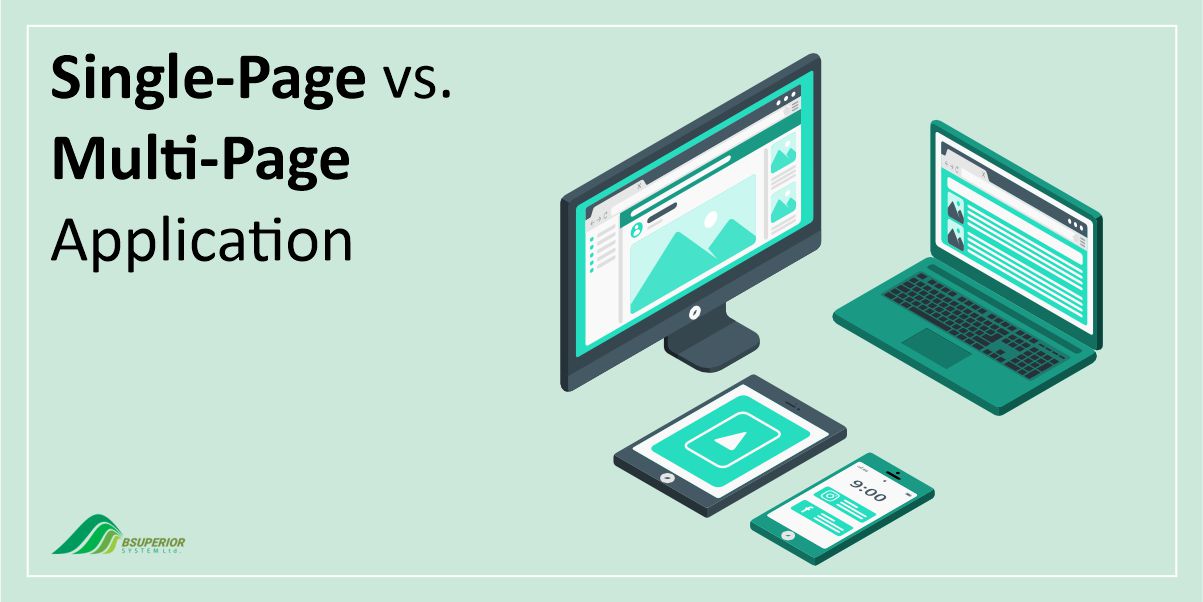How Does AI Affect ERP? Benefits and Use Cases
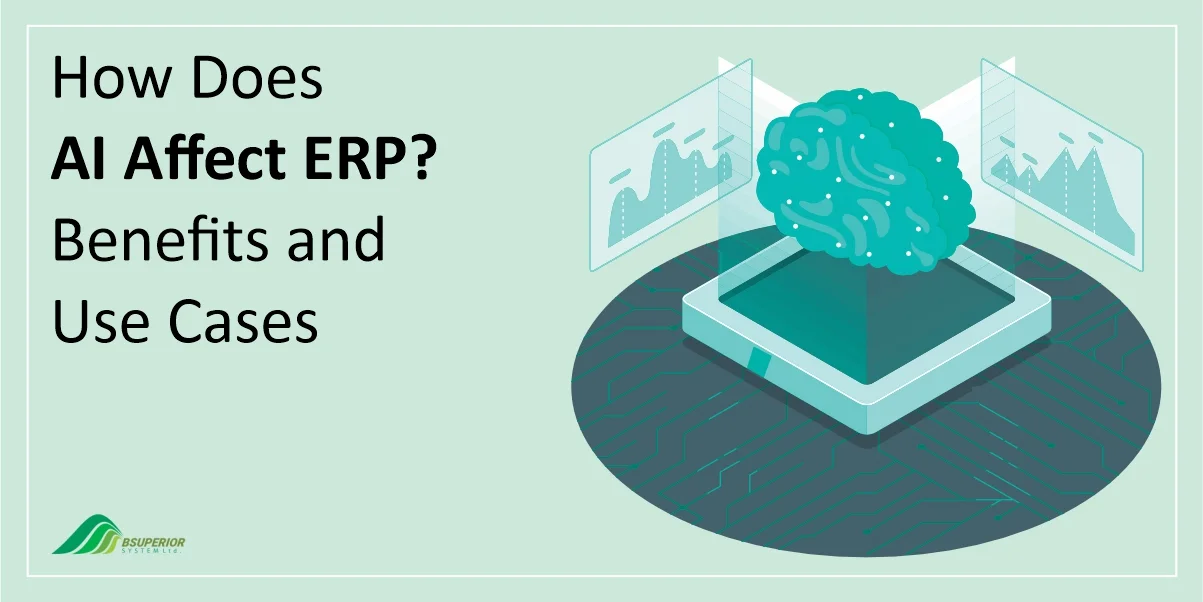
Table Of Content
Imagine a world where your business operations run smoother, smarter, and faster. That’s the promise of integrating artificial intelligence (AI) with your existing ERP system.
While ERP software already manages crucial functions, AI unlocks a whole new level of potential. In this blog post, we’ll explain the expanding role of AI within ERP and its exciting capabilities. We’ll also discuss how AI can impact the future of ERP.
What Do AI Systems Do?
AI in a Nutshell
Before we move on to explaining the role of AI in ERP, it is a good idea to have a discussion of AI and how it works as it will help us better appreciate its potential within the context of ERP.
Forget Hollywood portrayals of menacing robots – AI, in reality, is quite different. It’s not about replicating humans, but rather capturing the essence of human intelligence in a way machines can understand and use.
The core idea of AI is simple: can we define intelligence in a way machines can mimic and apply to tackle tasks, from basic to complex? The ultimate goal? Simulate human thinking.
Researchers are making impressive progress in areas like learning, reasoning, and perception, even pushing the boundaries of what machines might achieve in the future.
Some argue we’re nearing systems that surpass human learning capacity, while others remain cautious, highlighting the role of human experience and values in shaping how we think.
Why AI Matters
AI isn’t just about automating simple tasks. It’s about unlocking the hidden potential within data, paving the way for smarter products, deeper insights, and continuous adaptation. Let’s discuss why AI holds such importance:
- Learning and Discovery: AI automates repetitive learning and discovery processes, uncovering insights from vast amounts of data. Unlike manually automating tasks, AI tackles high-volume, frequent tasks with tireless reliability.
While humans remain crucial for setting up the system and asking the right questions, AI takes over the heavy lifting of data analysis. - Enhancing Existing Products: AI adds intelligence to existing products, making them smarter and more adaptable.
From home security systems to investment analysis, automation, conversational platforms, bots, and smart machines powered by AI can significantly improve various technologies we use daily. - Adaptive Learning: AI isn’t just static code. It learns and adapts through progressive algorithms, allowing data to essentially program itself.
Just like an AI can learn to play chess, it can learn what product to recommend next online, constantly improving its skills based on new data it encounters. - Unlocking Data’s Potential: When AI learns from data, the data itself becomes an invaluable asset. AI helps us extract the hidden answers within the data, creating a competitive advantage in various industries.
What is the Role of AI in Modern ERP Systems?
Artificial Intelligence (AI) has a number of crucial capabilities that can be integrated into modern ERP software. This integration brings several benefits, categorized into five key areas:
Read more: 10 Best Ecommerce ERP Software in 2024
1. Data Analytics and Predictive Insights
AI excels at analyzing large datasets and uncovering hidden patterns. AI-powered ERP systems use this ability to provide businesses with a competitive edge.
They can process real-time data in vast quantities, identifying trends, anomalies, and potential issues. Furthermore, through predictive analytics, AI helps forecast future developments, market fluctuations, and demand changes.
This allows companies to make informed decisions, optimize inventory management, and adjust strategies based on real-time insights.
2. Natural Language Processing (NLP)
This technology facilitates human-computer interaction through natural language. AI-driven ERP systems utilize NLP, allowing users to interact with the software through voice commands or text.
This creates a more intuitive and conversational experience, making the software more user-friendly and accessible. Instead of navigating complex menus and commands, users can simply ask questions or request specific information, enhancing their overall experience.
3. Automation and Optimization
AI excels at automating repetitive, rule-based tasks. Within ERP software, this translates to streamlining processes, reducing manual effort, and minimizing human error.
Data entry, invoice processing, and other time-consuming tasks can be automated, resulting in increased operational efficiency.
Additionally, AI can optimize workflows, improving performance across various departments. This not only saves time but also boosts productivity throughout the organization.
4. Personalization
AI can tailor user experiences by customizing interfaces and reports to individual needs and roles. This personalization ensures that relevant and actionable data is readily available to users.
Employees receive dashboards and reports that align with their specific requirements, roles, and responsibilities. It not only enhances user experience but also leads to more informed decision-making throughout the organization.
5. Cognitive Computing
This advanced form of AI enables systems to learn and adapt to user behavior. AI-powered ERP systems use cognitive computing to continuously improve their performance. They analyze user interactions, identify patterns, and offer suggestions for more effective decision-making.
For example, a cognitive ERP system might identify the most frequently used features by a user, making them easily accessible and suggesting other relevant features based on individual usage patterns.
AI-Powered ERP System: The Major Benefits
Beyond basic efficiency improvements, AI-powered ERP software provides several advantages that can significantly enhance your business processes.
Enhanced Data Processing
While traditional ERP offers streamlined workflows, it can struggle with real-time data analysis. AI integration unlocks supersonic information processing across departments, enabling accurate and data-driven planning with minimal human intervention.
Advanced Analytics
AI’s ability to handle massive datasets allows organizations to perform real-time, in-depth data analysis. This goes beyond traditional reports to include predictive analytics, leading to more agile decision-making and comprehensive problem-solving.
Improved Forecasting Accuracy
AI and machine learning are revolutionizing forecasting, minimizing uncertainty, and providing crucial benchmarks for business performance monitoring.
By bridging the gap between predictions and actual needs, AI-powered ERP optimizes areas like manpower, cash flow, and core operations.
Streamlined Automation
Manual data entry is a costly and time-consuming burden. By automating workflows, AI-enabled ERP eliminates human intervention in data upload and thus significantly enhances operational effectiveness.
Process Efficiency Optimization
AI analyzes historical data to suggest optimal workflows for maximum productivity. This leads to streamlined business operations, reduced errors, and significant time savings.
Simplified Data Accessibility
AI tackles the challenge of managing huge volumes of unstructured data by converting it into meaningful information. This enables companies to make informed decisions and actions that drive growth.
AI-Powered ERP: The Main Use Cases
AI is transforming various aspects of ERP systems, unlocking new layers of functionality and value. Below you can see some of the key use cases.
Enhanced Analytics and Forecasting
AI elevates predictions and projections in areas like supply chain, production planning, inventory management, and sales forecasting.
By analyzing historical data and current conditions, AI generates accurate and reliable forecasts that optimize resource allocation, demand management, and inventory replenishment.
To give you an example, the Samsung company uses AI for more accurate demand forecasting.
Human Resources Management
AI automates and improves HR tasks like recruitment, performance management, and employee engagement. By analyzing resumes, interviews, feedback, and surveys through NLP, AI provides insights into candidate suitability and personality.
Additionally, AI uses ML to monitor employee performance and satisfaction, offering personalized coaching, training, and rewards. Vodafone, for example, makes use of AI to provide more intelligent customer service.
Read more: What is ERP in Procurement? Role and Benefits
Finance and Accounting Management
AI automates and improves finance/accounting functions like transaction processing, invoice processing, and financial analysis. Using OCR, AI extracts data from documents and invoices for validation and reconciliation.
ML and NLP then analyze financial data to provide insights on cash flow, profitability, and risk. A company that uses AI to determine production costs is AmerisourceBergen.
Customer Service Management
AI-powered chatbots and virtual assistants using NLP and NLG provide faster, cheaper, and more consistent customer service by answering common queries and requests.
Moreover, AI analyzes customer feedback and sentiment through ML and NLP to offer personalized recommendations and solutions. Take Vodafone for example that offers intelligent customer service powered by AI.
AI in ERP: A Double-Edged Sword
While AI integration in ERP systems promises exciting advancements, it’s crucial to acknowledge the potential risks and challenges that come with it.
1. Data Privacy and Security
AI thrives on vast amounts of data, often containing sensitive information. Protecting this data from unauthorized access, misuse, or disclosure is paramount.
Regulations like GDPR demand strict data handling practices that require encryption, anonymization, and adherence to ethical principles. AI systems must also be robust against breaches and leaks to maintain data integrity and confidentiality.
2. Transparency and Explainability
AI often operates as a black box, with its logic and decision-making processes veiled from human understanding. This lack of transparency can hinder trust, accountability, and compliance.
If an AI decision impacts a customer, employee, or stakeholder, how can it explain its reasoning? How can it ensure fairness and adherence to ethical and legal norms?
As a result, transparency and explainability are key to building trust in AI and guaranteeing its fairness, accuracy, and reliability.
3. Bias and Fairness
AI systems can inherit or amplify biases present in the data they use or the algorithms they employ. This can lead to unfair or discriminatory outcomes for specific groups or individuals.
Imagine an AI credit score prediction system favoring certain demographics based on historical data. Mitigating bias is crucial to ensure AI systems do not harm or disadvantage anyone based on their characteristics or preferences.
That’s why, continuous auditing and monitoring for potential biases, followed by necessary corrections, are essential.
4. Cybersecurity and Resilience
AI systems are vulnerable to cyberattacks and malicious manipulation. Attackers might aim to steal, corrupt, or destroy data, sabotage functionality, or influence system behavior.
Scenarios include injecting false data to compromise accuracy, extracting confidential information through reverse engineering, or exploiting vulnerabilities to gain unauthorized access.
For these reasons, robust cybersecurity measures and resilience strategies are crucial to protect AI systems from cyber threats and ensure their ability to recover from disruptions or damage.
Read more: ERP Integration: Benefits and Everything Else You Need to Know
Is AI Shaping the Future of ERP Software?
Industry experts anticipate that ERP systems will increasingly integrate native AI capabilities, automating entire workflows instead of simply streamlining existing ones. However, maximizing the value of AI in ERP presents several challenges.
- Collaboration and Coordination: Stakeholders like vendors, customers, partners, and regulators will need to collaborate and coordinate more effectively to ensure smooth AI implementation.
- Ethical, Legal, and Social Issues: AI raises ethical, legal, and social concerns regarding data privacy, security, accountability, and transparency. Additionally, it requires addressing skills development, training, and organizational culture changes.
- Data and Process Optimization: Using AI requires well-organized data and processes. Many attempts at AI automation have been hindered by underlying inefficiencies that need to be addressed first.
- Time Investment and Subject Matter Expertise: Integrating and auditing AI requires time, subject matter expertise, and a willingness to embrace new approaches. Access and process control conversations are also crucial, particularly for sensitive data and financial reporting.
Overall, while implementing AI in ERP offers significant potential benefits, it requires careful planning, collaboration, and a willingness to address potential challenges to ensure its successful integration and maximize its value.
Final Words
Integrating AI with ERP software offers potential benefits across various business functions, including accounting, human resources, customer service, and supply chain management.
While the full impact of AI on ERP is still evolving, it’s clear that this technology presents transformative opportunities for many organizations.
This raises the question: have you evaluated how emerging technologies like AI could enhance your current systems?
Our team at BSUPERIOR has a great deal of expertise in these two areas. Our efforts to understand the needs of different businesses and industries can provide an ERP optimized with new technologies such as AI and tailored to the needs of each customer.

We focus on helping businesses achieve efficiency, streamline processes, and drive growth. Contact us today to discuss your specific needs and explore how our expertise can contribute to your success.
We value your input and believe this content may enhance our services. However, it's under review. If you see room for improvement, please use the "Report an issue" button below. Your feedback helps us excel.
Contact us today at –– and speak with our specialist.

